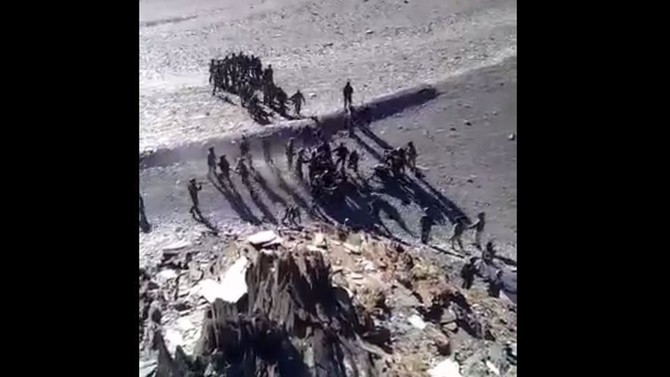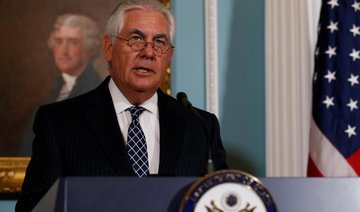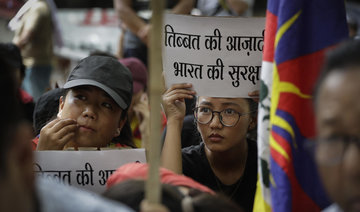DUBAI: A video purportedly showing Indian and Chinese soldiers throwing stones at each other close to the de-factor border between the two countries has surfaced on social media.
The Indian military is yet to comment on the authenticity of the video, which has been reported on by leading Indian media outlets, but did confirm that “an incident” took place near Pangong Lake in Ladakh on August 15, an incident which the video purports to show.
The video shows a group of around 50 people throwing stones at each other and engaging in a skirmish. No weapons are used in the video, however.
“Currently, we have no confirmation of the authenticity of the video,” the army said, according to the Hindustan Times.
#FirstOnThePrint Video of Indian & Chinese soldiers clashing at Pangong lake in Ladakh on August 15. @manupubby pic.twitter.com/qzZvVYFfjX
— ThePrint (@ThePrintIndia) August 19, 2017
The Chinese soldiers hurled stones while attempting to enter Ladakh region near Pangong Lake on Tuesday but were confronted by Indian soldiers, said a top police officer. The officer said Indian soldiers retaliated but neither side used guns, the Associated Press reported.
China did not immediately comment.
An Indian intelligence officer said the confrontation occurred after Indian soldiers intercepted a Chinese patrol that veered into Indian-held territory after apparently it lost its way due to bad weather.
The officer said soon the soldiers began shouting at each other and later threw stones. He said some soldiers from both sides received minor injuries.
After nearly 30 minutes of facing off, the two sides retreated to their positions, he said.
An Indian military officer said the skirmish was brief but violent and for the first time stones were used.
All the officers spoke on condition of anonymity because of the sensitivity of the issue.
— With AP
















